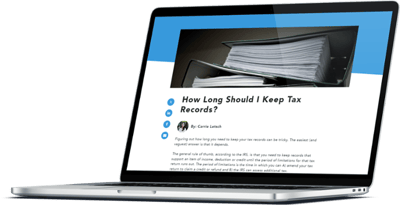In a letter to administrators of “large” employee benefit plans — plans with more than 100 participants — the U.S. Department of Labor reported high levels of concern about the audit quality of employee benefit plans as well as the CPAs who perform them.
The letter stressed the importance of a quality audit performed by a qualified and experienced employee benefit plan auditor.
How Do I Know My Employee Benefit Plan Auditor Is Qualified?
The DOL provided a list of five factors that can help plan administrators select a qualified auditor:
1. The number of employee benefit plans the CPA audits each year, including the types of plans
Expertise in auditing multiple plan types can help weed out less experienced CPAs. If your plan's audit is your auditor’s only employee benefit plan audit or the only type of benefit plan they audit, you may want to consider finding a CPA with a more complete knowledge of requisite plan audit requirements and expertise.
2. The extent of specific annual training the CPA received in auditing plans
Due to the complexity and ever-changing requirements, employee benefit plan audits require a CPA who takes part in concentrated employee benefit plan audit trainings on a regular basis. Being part of a voluntary membership group, like the American Institute of CPA’s Employee Benefit Plan Audit Quality Center, also helps ensure that your auditor has the training and resources needed to complete a quality audit.
3. The status of the CPA’s license with the applicable state board of accountancy
It goes without saying that a CPA who is in anything but in good-standing with their state board of accountancy is not an asset when it comes to providing quality audit work for your plan.
4. Whether the CPA has been the subject of any prior DOL findings or referrals, or has been referred to a state board of accountancy or the American Institute of CPAs for investigation
History is telling. Before hiring an auditor, confirm that they do not have a record of “findings” (critical issues) in their prior audit work.
5. Whether or not your CPA’s employee benefit plan audit work has recently been reviewed by another CPA (this is called a “peer review”), and if so, whether the review resulted in negative findings
CPAs who perform employee benefit audits are required to undergo a peer review every three years to ensure the quality control of each firm’s accounting and auditing practices. Ask to see your auditor’s most recent peer review, and make sure they received a “pass” from their reviewer. Firms that receive less than a passing report may not have the experience or training necessary to provide a quality employee benefit plan audit.
What Are the Consequences of Substandard Audit Work?
First and foremost, substandard audit work can and often results in civil penalties against the plan sponsor by the DOL. These civil penalties are incurred by failing to remain in compliance with the law, resulting in fines that range from $10 to $1,100 per day.
These fines can result in an enormous and unnecessary financial burden on your organization, threatening both plan administrators and sponsors by jeopardizing plan assets.
By hiring a quality auditor, you help ensure that the assets of your plan are protected, meaning that the plan’s participants and beneficiaries receive the benefits they’ve paid for, and your organization remains in compliance with changing laws and regulations.
Need Help?
Contact us online or call 800.899.4623.


